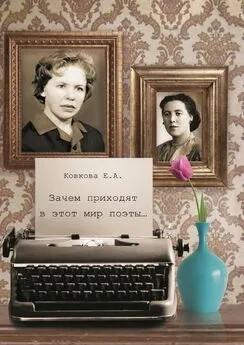Елена Миклашевская - Зачем им столько времен?
- Название:Зачем им столько времен?
- Автор:
- Жанр:
- Издательство:Литагент Ридеро
- Год:неизвестен
- ISBN:9785005033345
- Рейтинг:
- Избранное:Добавить в избранное
-
Отзывы:
-
Ваша оценка:
Елена Миклашевская - Зачем им столько времен? краткое содержание
Зачем им столько времен? - читать онлайн бесплатно ознакомительный отрывок
Интервал:
Закладка:
I (have) a quick look at my nose. It (seem) all right. Then I (look) at George’s nose. It (be) all right, too. «Look at your nose, you stupid thing!» (cry) the same voice. Then another voice (call), «Push your nose out, you two, with the dog!»
Only then we (understand). We (come) too close to the lock gate, and the nose of our boat (be) trapped in the wooden gate. The water (rise), and our boat (begin) to turn over. Quickly, we (push) hard against the side of the lock to move the boat. It (not/ move), and George and I (fall) on our backs.
Nobody (buy) the photo, as our feet filled it. The photographer (not/be) very pleased.
Answer the questions:
1.What did the friends see when they came to the lock in Wallingford?
2.Why did George start to brush his trousers and fix his hair?
3.Why did not the narrator understand the man who cried «Look at your nose!»?
4.What had happened to their boat?
5. What did they do to free the nose of the boat?
6.Why did not people in the lock want to buy the photos?
31. «The Wizard of Oz» by Frank Baum
Vocabulary: stuff – набивать, straw – солома, tailor – портной
Tenses to use: Present Simple, Past Simple, Future Simple, Past Continuous, Present Perfect, Present Simple Passive, Past Simple Passive
Dorothy and the Scarecrow (sit) by a small river. «Please, tell me about your country,» (ask) the Scarecrow.
Dorothy (tell) her new friend about grey Kansas prairie where everything (burn) by the hot sun and that (be) nothing like this beautiful land. Her story (listen) to with great interest. The Scarecrow (say), «I (not/understand) why you (want) to return to such dry and dusty place».
«Kansas (be) my homeland. There (be) no place like home,» (answer) Dorothy.
The Scarecrow (smile), «I (stuff) with straw. It (grow) in the field by the farmers. My clothes (make) by the tailor and my boots (make) by the shoe-maker. Where (be) my home?»
Dorothy (not/know) what to say, and they (be) silent for some time.
«Now you (tell) me something,» (ask) Dorothy.
The Scarecrow (look) at her. «My life (be) so short yet. I (take) to the field and (leave) there. At first the birds (frighten) of me, but soon they (stop) being afraid. One day I (tell) about the brains by one of the crows. Now this (be) what I (want) most of all – brains. I (hope) that the Great Wizard (give) them to me».
Answer the questions:
1. What did the Scarecrow ask Dorothy about?
2. What did Dorothy tell him about her country?
3. What couldn’t the Scarecrow understand?
4. Why couldn’t the Scarecrow say where his homeland was?
5. What did he want most of all?
32. «Three Men in a Boat» by Jerome K. Jerome
Vocabulary: hide (hid, hidden) – прятать, edge – край, the rest of – остальное
Tenses to use: Present Simple, Past Simple, Past Continuous, Past Perfect, Past Simple Passive,
We (sit) in the field near the river. Harris (prepare) the food and we (wait) with our plates.
«You (have) a spoon?» Harris (ask). «I (need) a spoon».
The basket (be) behind us and George and I both (turn) to get a spoon. It (take) five seconds. When we (look) back again, Harris and the food were gone. It (be) an open air, no trees, nowhere to hide. He (not/fall) into the river, because we (be) between him and the water. But Harris (disappear)!
Sadly, we (look) at each other and at the place where Harris and the food (be). And then, to our horror, we (see) Harris’s head – and only his head – in the grass. The face (be) red and very angry.
«Say something!» George (cry). «You (be) alive or dead? Where (be) the rest of you?»
«Oh, don’t be stupid!» Harris’s head (say), «you (tell) me to sit there». And from the middle of the grass Harris (appear), dirty and wet.
Harris (not/know) that he (sit) on the edge of the hole. It (hide) by the grass. Then, suddenly, he (fall) backwards into it.
Harris still (believe) that George and I (plan) it.
Answer the questions:
1. What was each of the friends doing in the field near the river?
2. What happened when George and the narrator turned to get a spoon?
3. What did they see some time later? How did Harris’s head look?
4. What had happened to Harris?
33. «Three Men in a Boat» by Jerome K. Jerome
Vocabulary: ladder – лестница-стремянка, hammer – молоток, nail – гвоздь.
Tenses to use: Present Simple, Past Simple, Past Continuous, Past Perfect, Past Simple Passive, Future Simple Passive.
Uncle Podger (keep) everybody in the house busy when he (do) a job. One day he (come) home with a picture.
«I just (buy) it,» he (say), «where we (put) it? I (do) it myself.»
Then he (take) off his coat and (begin). One of the girls (send) out to buy some nails, and then one of the boys (send) to tell her the size of the nails.
«Now, Bill,» he (shout), «you (go) and (get) my hammer, and Jim (bring) me a ladder, and the light (hold) by Maria.»
Then he (lift) the picture up – and he (drop) it. He (try) to catch the glass – and he (cut) his finger. So, for a long time he (run) around the house and he (shout) at everybody.
Half an hour later, the finger (tie) up, a new glass (bring), and everything (be) ready. Uncle Podger (try) again. The chair (hold) by two people, a nail (give) by the third, the hammer (pass) by the fourth. He (take) the nail… and he (drop) it. Everybody (get) down to look for it. At last, the nail (find), but then the hammer (lose). We (find) the hammer for him, but he (lose) the mark for the picture on the wall. So, it (look) for by each of us, and each of us (find) it on a different place.
Uncle Podger (try) again. This time he (fall) off the chair on the piano. His head and his body (hit) the piano at the same time. The music (be) beautiful, but Uncle’s words (not/be). Aunt Maria (say) that she (not/want) the children to listen to those terrible words.
«The next time you (put) a picture on the wall, please, tell me,» she (say), «then I (go) and (spend) a week with my mother.»
At midnight the picture (be) on the wall. It (not/be) put very straight, and the wall around it (not/look) well. But Uncle Podger (be) proud. «You see, it (be) gust a little job,» he (say).
Answer the questions:
1. What was the first thing Uncle Podger did when he started to put the picture on the wall?
2. What happened when everything was ready? Why was there a half an hour delay?
3. How were the children arranged before the second attempt? What was the problem this time? What made Aunt Maria angry?
5. How did Uncle Podger feel when the picture was finally on the wall?
34. «Three Men in a Boat» by Jerome K. Jerome
Vocabulary: spin – крутиться
Tenses to use: Present Simple, Past Simple, Future Simple, Present Perfect, Past Perfect, Past Simple Passive, Past Perfect Passive, Past Perfect Continuous, Future-in-the-Past Simple.
1
In the evening we (meet) to pack the things for the journey. After we (move) the table to the window, we (put) everything in the middle of the room. I (say) that I (pack). I also (say) that I (be) very good at packing. They (agree). George (light) a pipe and (sit) down in the armchair. Harris (put) his feet on the table and (light) a cigarette.
It (not/be) what I (expect). I (think) I (tell) them what to do, and then I (sit) and (watch). But I (say) nothing, and (start) the packing. It (seem) a longer job than I (think), but in the end it (finish).
After the suitcase (close), Harris (ask), «You (pack) the boots?»
I (look) around and (see) the boots. It (make) me angry. Why Harris (not/say) earlier?
I (open) the suitcase and (put) the boots in it. When I (be) about to close it, I (remember) about my toothbrush. I (not/be) sure if I (pack) it. Of course, I (have) to look for it, and of course, I (find) George’s and Harris’s eighteen times, but I (not/find) mine. In the end, I (find) it inside the boot.
When I (finish), George (tell) me) that the soap (not/pack) yet. I (answer) that I (not/care) and (close) the suitcase.
It (be) late in the evening, and the food (not/be) packed yet. Harris (say) that he and George (do) the rest of the packing. I (agree) and (sit) down.
2
They (begin) happily as they (want) to show me how to do it. I (make) no comment. I only (wait). I (know) that it soon (be) very exciting. I (be) right.
They (start) with breaking a cup. Then Harris (pack) the jam on the top of a tomato. After that, they (have) to pick out the tomato with a teaspoon. Then it (be) George’s turn, and he (step) on the butter. I (not/say) anything, but (sit) on the edge of the table and (watch) them. It (make) them worried and excited. They (step) on things, they (pack) pies at the bottom, and (put) heavy things on top. They (upset) salt over everything.
Then they (begin) to pack the butter. As Harris already (step) on it, he (have) to get it off his shoe. After that, they (decide) to put it into the teapot. When the butter (put) inside it, they (have) another idea, (get) it out of the teapot and (put) it down on the chair. Harris (sit) on it, and it (stick) to him. Then they (run) round the room looking for it, (meet) in the center and (look) at each other.
«So mysterious. Where it (be)?» (say) Harris.
In the end, George (get) behind Harris, and he (see) it.
«There it (be)!» he (cry). «It (be) there all the time!»
«Where?» (cry) Harris, spinning around.
«Stand still!» (roar) George, flying after him.
And they (get) the butter off Harris and (pack) it into the pot again.
The packing (finish) at 12 o’clock, and we (go) to bed. «Wake us at 6.30, George,» (say) Harris. George (make) no answer, and we (find) out that he (be) asleep for some time already.
Answer the questions:
1. Why was the narrator disappointed when the packing started?
2. What made him angry when he had locked the suitcase?
3. What was the problem with the toothbrush?
4. What proved that George and Harris were not very good at packing?
5. How did they manage to lose the butter? How was it found?
35. «Three Men in a Boat» by Jerome K. Jerome
Vocabulary: maze-лабиринт, give up hope – терять надежду.
Tenses to use: Past Simple, Future Simple, Past Continuous, Past Perfect, Past Perfect Continuous, Future-in-the-Past Simple, Future Perfect, Past Continuous Passive, Future-in-the-Past Simple Passive.
When we (come) to Hampton Court Palace, Harris (ask) me if I ever (be) to the maze there. He (say) he (be) to there once to show a friend the way. He (study) the map of the maze carefully before he (go) there, so he (be) sure that the way out (find) very quickly. Harris (say) to his friend, «We (go) in and (walk) around for some time. By lunch time we (come) out of the maze.»
Soon after they (go) in, they (meet) some people. Those people (say) that they (be) there for an hour and they (have) enough of it. Harris (tell) them they (bring) out very quickly. More and more people (join) Harris. They (give) up all hopes of seeing their families and friends again.
They (walk) around for some time when they (see) a piece of cake on the ground. Harris’s friend (say) that they already (pass) it earlier. Harris (get) angry and (start) again. He now (follow) by about twenty people. Ten minutes later they (find) themselves in the center of the maze.
Читать дальшеИнтервал:
Закладка:
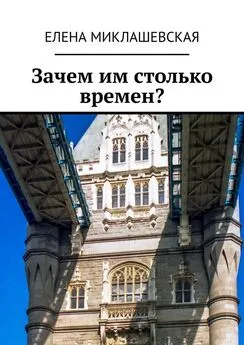

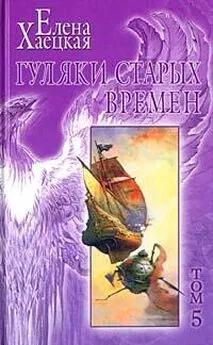
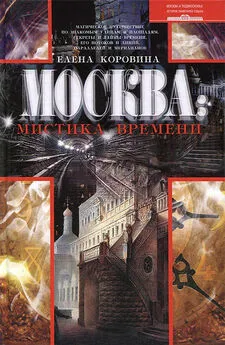
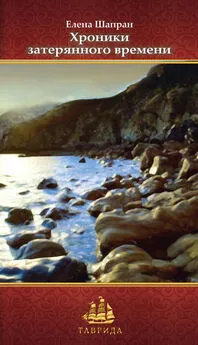
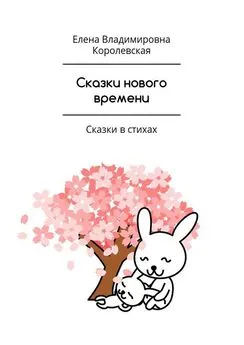
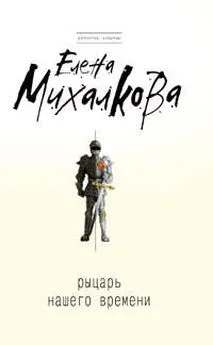
![Елена Гордина - Зачем ты это сделала? [litres с оптимизированной обложкой]](/books/1145711/elena-gordina-zachem-ty-eto-sdelala-litres-s-opti.webp)

